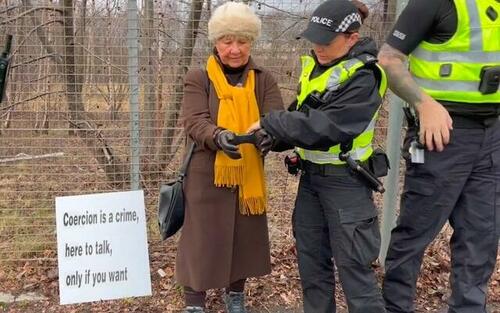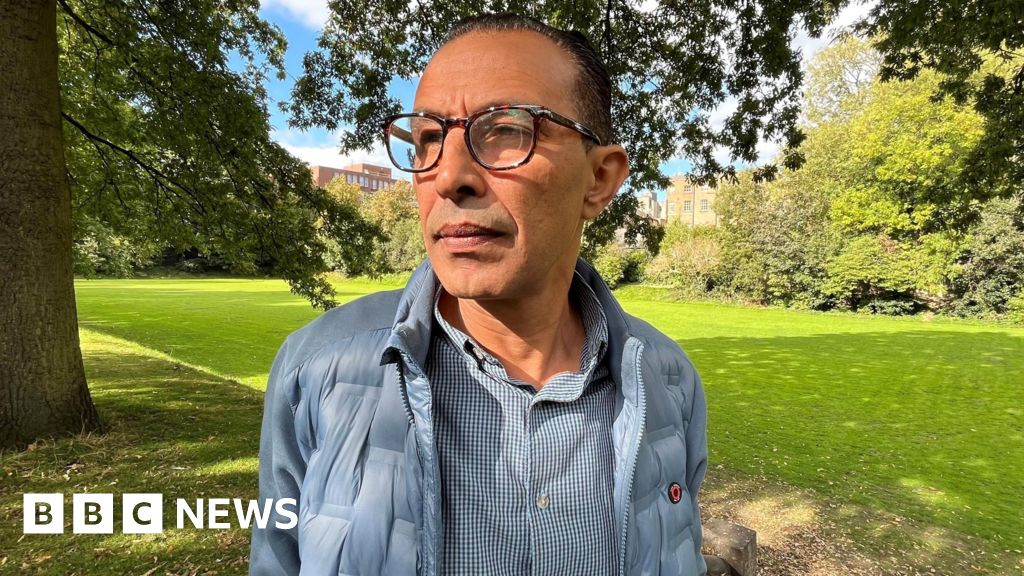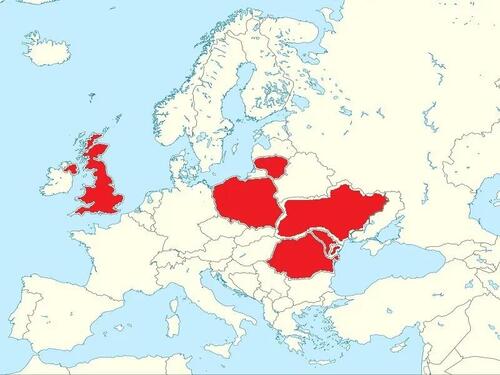Afghanistan Goes Dark: Taliban Pull Plug on 40 Million People
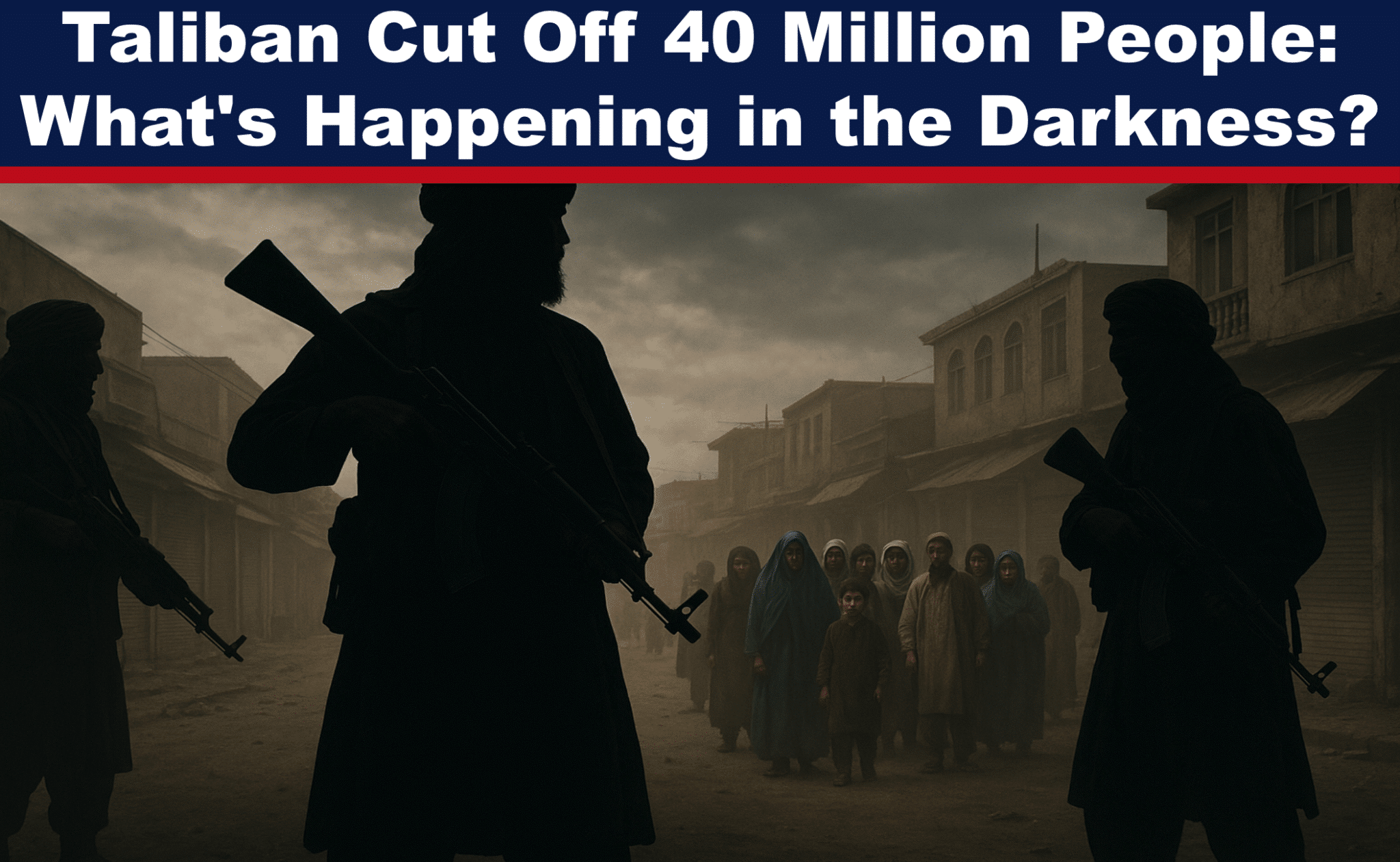
The entire country of Afghanistan has just entered a total communications blackout. At 5pm on Monday 29 September, Taliban authorities cut the country’s fibre-optic backbone, reducing internet and mobile connectivity to less than 1% of normal operations according to internet watchdog NetBlocks. The UN has called for services to be restored immediately, warning of severe economic and humanitarian risks.
Air travel halted without warning. Reportedly, Turkish airlines flying into Kabul were not given advance notice of the internet shutdown, opting for a sudden cancellation. Everything from border operations to daily shopping, bureaucratic procedures, international trade and tourism has been cut off in an instant, and diplomatic sources say the shutdown will “remain in place until further notice”.
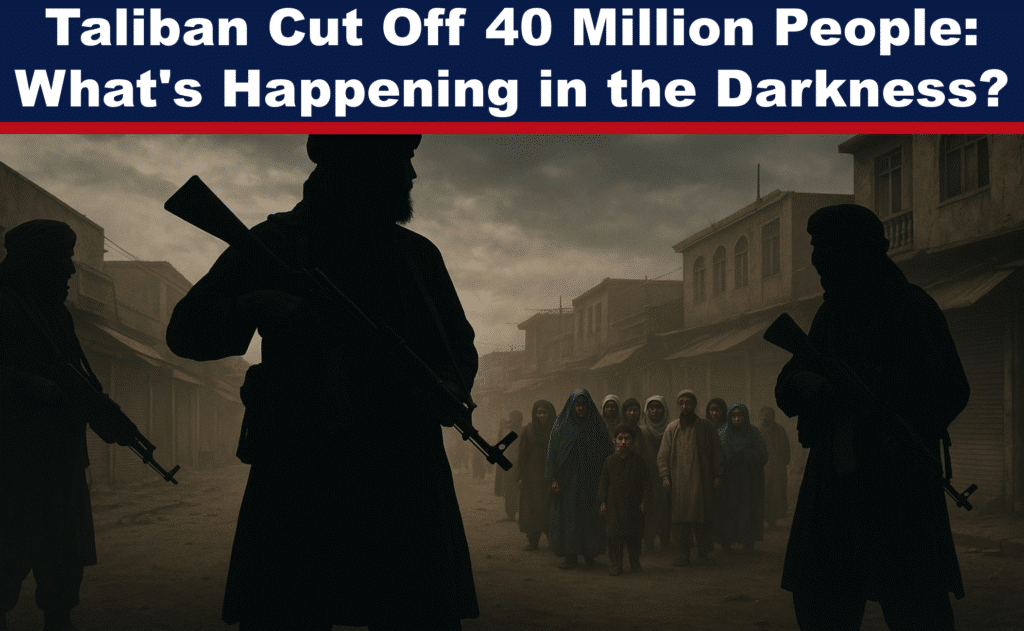
The Taliban Just Took a Whole Country Offline
Officials have framed the move as a morality measure, aimed at stopping vice like pornography access, after weeks of progressively severing fibre links province by province. On the ground, the effective is boundless, throttling phones, banking, customs, media, schools, hospitals and aid work with one sweeping decision. Kabul residents report being blind without phones and internet that support everyone’s day-to-day lives, and the outages continue with no clear line on when they’ll be back up and running.
Why It Happened
Officially, there is no specific reason for this week’s total blackout. However, earlier this month, a spokesperson for the Taliban governor in Balkh province wrote on X that the ban on fibre-optic internet was meant to curb “evils”. He added that authorities would explore alternatives.
This week’s connectivity cut-off is the latest in a series of Taliban-enforced restrictions introduced since they returned to power in the country. Already this month, they removed books written by women from the country’s education system – part of a new ban that’s also outlawed the teaching of human rights and sexual harassment.
Taliban supreme leader Hibatullah Akhundzada ordered a “complete internet ban” earlier this month, starting in smaller provinces first. Haji Attaullah Zaid from the Balkh administration said “this measure was taken to prevent immorality, and an alternative will be built within the country for necessities”.
Mahbob Shah Mahbob, an exiled Afghan journalist, said there was “concern about people accessing pornographic content inside Afghanistan”. He added that “they’re also concerned about how their extremist rule is being perceived by the outside world and the bad publicity”.
A UN official in Kabul, on condition of anonymity, told news sources that “no notice was given today, but sporadic bans here and there were rolling out over the past few weeks in parts of the country”
It’s Not Just About Afghanistan
The blackout hits international aviation, cross-border trade, remittances and humanitarian operations that rely on digital links for coordination and clearance. The UN has flagged critical risk to healthcare, payments and information access, particularly for women and girls who have already been forced into online spaces for services denied offline.
Foreign arrivals, while still modest, have risen sharply under Taliban rule as niche adventure tourism opened historic routes to Kabul, Herat, Bamiyan and Mazar-i-Sharif. 9,000 foreign tourists visited in 2024, and over 3,000 made the trip in the first quarter of 2025 according to official reports. Today, an unknown number of those visitors face cancelled flights, offline land borders, and no internet to contact families or embassies. It’s impossible now to know how many, but undoubtedly foreigners are trapped inside the country with no support whatsoever.
Who Gets Hit the Hardest?
- Humanitarian aid agencies are falling back to radio and limited satellite links, slowing life-saving work and complicating security coordination
- Everyday commerce is suffering with banking, payment networks and supply chains stalling while communication is offline, hitting markets and medicine deliveries by the hour
- Travellers and residents unable to enter or leave the country with cancelled flights and visa and ticketing systems offline. Even overland crossings depend on digital systems, affecting personal freedoms and international trade routes
So, What’s Happening in the Darkness?
If past shutdowns in other countries are a guide, authorities may be detaining critics, conducting raids, or pushing through policy that would face pushback if visible to the outside world in real time. The information vacuum allows for total narrative control when services partially return, for example by throttling internet speeds or limiting access to international platforms.
Final Thought
This is a deliberate, nationwide switch off. A population bigger than Poland, Ukraine or California has been plunged into darkness. Afghans – and quite probably, foreign tourists too – are suddenly stranded from the rest of the world, and critical humanitarian support has been totally disabled. Most importantly, it displays a government willing to make drastic changes, risking absolute disruption to the daily lives of its citizens, to impose what it considers moral restrictions.
Join the Conversation
What do you think is happening during the blackout? Is it as simple as banning pornography, or is there more at play here? Should the international community just stand by and watch? Tell us your thoughts below.
I’m George Calder — a lifelong truth-seeker, data enthusiast, and unapologetic question-asker.I’ve spent the better part of two decades digging through documents, decoding statistics, and challenging narratives that don’t hold up under scrutiny. My writing isn’t about opinion — it’s about evidence, logic, and clarity. If it can’t be backed up, it doesn’t belong in the story.Before joining Expose News, I worked in academic research and policy analysis, which taught me one thing: the truth is rarely loud, but it’s always there — if you know where to look.I write because the public deserves more than headlines. You deserve context, transparency, and the freedom to think critically. Whether I’m unpacking a government report, analysing medical data, or exposing media bias, my goal is simple: cut through the noise and deliver the facts.When I’m not writing, you’ll find me hiking, reading obscure history books, or experimenting with recipes that never quite turn out right.
Recent Top Stories
Sorry, we couldn't find any posts. Please try a different search.




